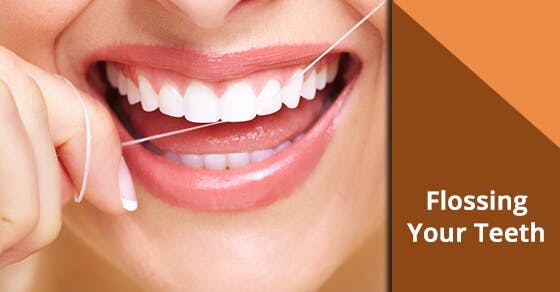What Happens To Your Gums When You Don’t Floss?

Let’s face it, most of us don’t look forward to flossing our teeth. However, it’s a very important part of your daily oral hygiene routine. By regularly flossing, you can avoid needing painful or time-consuming dental services. Flossing removes bacteria and food debris from between the teeth, preventing plaque buildup.
Plaque is a sticky, transparent film that coats your teeth. It contains millions of bacteria and if it accumulates on and between your teeth, it can cause problems such as tooth decay and gum disease.
The two biggest issues you’re avoiding when you floss regularly are gingivitis and cavities. Of these two, gingivitis is what affects your gums. Gingivitis is easy to treat and can be reversed by simply sticking to a good oral hygiene routine. However, if left untreated, gingivitis can develop into gum disease, which can have serious effects not only on your oral health but also on your overall health.
Gingivitis is an inflammation of the gums. Signs you may have gingivitis include:
- Redness and swelling in the gums.
- Bleeding when brushing or flossing.
- Tenderness, pain, and discomfort in the gums.
If you think you have gingivitis, you should continue to brush and floss daily, and use an antimicrobial mouthwash. If the symptoms persist or get worse, you should see your dentist as soon as possible.
If left untreated, Gingivitis can progress to gum disease, which can be quite serious. Symptoms of gum disease include:
- Chronic bad breath
- Red, inflamed, tender gums
- Bleeding gums
- Loose teeth
- Pain and sensitivity in the gums and teeth
- Receding gums
Treatment for gum disease depends on the severity of the infection and may require a deep cleaning, and/or medication. In very severe cases, surgery may be necessary. No matter how severe, if you experience any symptoms of gum disease you should seek dental services as soon as possible.
Flossing is an essential step to avoiding gingivitis and gum disease, along with brushing at least twice daily, and visiting your dentist for regular check-ups and cleanings.
When flossing, it’s important to use the correct technique or you risk getting plaque further stuck in your gums, rather than removing it. Ask your dentist to demonstrate the correct way to floss to ensure you’re doing it right and removing as much bacteria as possible.
Even though flossing isn’t the most exciting activity, it’s a very important one when it comes to maintaining healthy gums and teeth, and avoiding extensive dental services in the future. Make flossing part of your routine, and you’ll be rewarded with excellent oral health!
Book Online
Roots on Whyte Dental offers the ability to request your dentist appointments online. Schedule an appointment now!
Book OnlineNew Patient Forms
By filling out the New Patient Forms ahead of time you will save significant time on your visit.
New Patient Forms